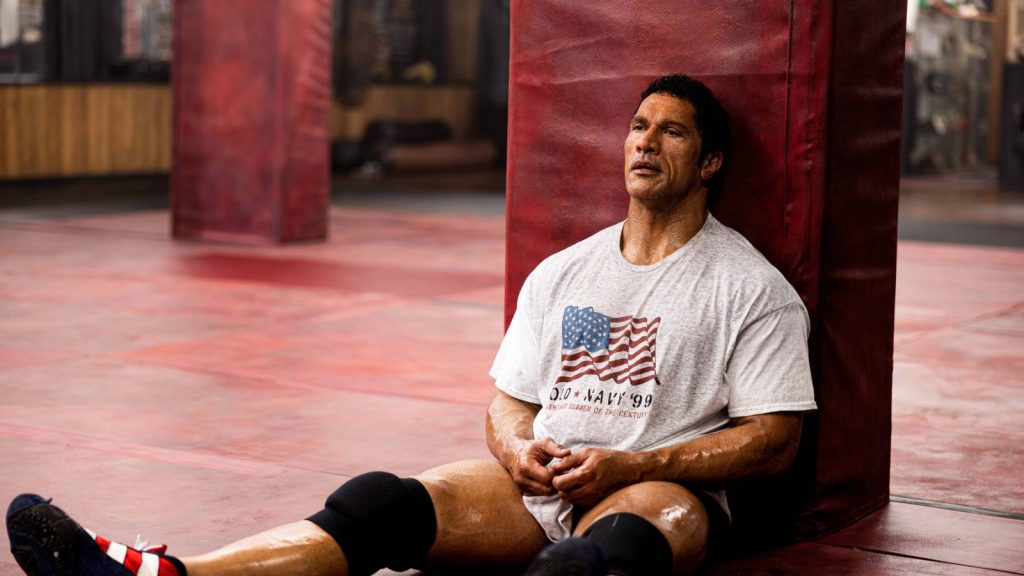With a title like The Smashing Machine, one might expect Benny Safdie’s first solo-directed feature to be a relentless and intense experience. The film, inspired by the 2002 documentary of the same name, chronicles the life of Mark Kerr, an early American mixed martial arts star. However, instead of presenting a gritty portrayal of MMA’s brutality, The Smashing Machine adopts a more reflective and serene approach, floating rather than jabbing at the audience.
This shift in tone is a refreshing departure from the usual fiery nature of films about professional fighters. Although there is violence and intensity, Safdie handles it with a surprisingly gentle touch, portraying these formidable athletes as ordinary individuals striving for success. The film is unexpectedly warm; what one might anticipate as harsh is, for the most part, inviting. Yet, the balance between subtlety and flatness is precarious, and The Smashing Machine strays into the latter territory more often than desired, leading one to wonder if there’s enough heat in the narrative.
Mark Kerr is portrayed by Dwayne Johnson, the former wrestler turned action-comedy superstar, with the film’s marketing emphasizing it as an opportunity for dramatic performance. While many actors have undergone similar transformations, Safdie doesn’t offer Johnson ostentatious moments or Oscar reel scenes. Instead, he focuses on Johnson’s softer side, aligning with his usual gentle persona rather than indulging in melodrama.
Johnson’s promotional style often comes across as somewhat slick, and the film’s depiction of Kerr reflects this polished demeanor, showcasing a polite facade that may seem unexpected for someone in a violent profession. Yet, The Smashing Machine poignantly uncovers the genuine humanity beneath Kerr’s charm; it distinguishes what is authentic about him from what is merely surface-level. Johnson delivers a humble performance full of restraint, skillfully avoiding the urge to go over the top.
Safdie constructs a fitting backdrop for this nuanced portrayal as the story unfolds with a dreamlike quality, chronicling Kerr’s journey globally. The contrast between the high-pressure octagon and mundane domesticity is effectively captured, with composer Nala Sinephro providing a fluid, alt-jazz score that creates a mesmerizing atmosphere. However, this enchanting quality occasionally borders on lethargy, leaving audiences in a daze when a more suspenseful tone could be beneficial.
Although Kerr’s struggles with addiction and personal relationships are significant, the film fails to convey a tangible sense of urgency. The depiction of Kerr’s passion often feels more like a notion rather than a palpable driving force. Viewers expecting an exhilarating sports drama akin to a modern Rocky may be disappointed by the overall lack of excitement.
Safdie refrains from glamorizing Kerr’s profession or depicting MMA as anything but raw and chaotic, showcasing the sport in its nascent stages during the late 1990s. The environment is portrayed as dreary and unremarkable, yet there’s an intriguing allure to these settings and their inhabitants, conveying a sense of normalcy amidst the colossal figures around them. The film features real-life MMA fighter Ryan Bader, who lends authenticity to the narrative, portraying camaraderie among fighters, including Bas Rutten, who plays himself. Emily Blunt’s performance as Kerr’s girlfriend, Dawn Staples, seamlessly integrates into the film’s relaxed vibe, striking a balance with Johnson even in moments of escalating tension.
Nonetheless, a few dramatic moments might have enlivened the film. The Smashing Machine is so understated that one questions its cinematic value. While its tranquil essence is appreciated, a stronger infusion of drama might better justify its existence. It’s only toward the conclusion that a deeper purpose is revealed in a poignant scene reflecting on the ups and downs of Kerr’s journey. This subtle introspection invites thoughts about Johnson’s own career, reminding us that setbacks don’t define one but rather refine one’s commitment to their goals. Overall, while The Smashing Machine may not be easy to embrace due to its ambiguous form, it offers a delicate viewpoint that shuns sensationalism, focusing instead on the nuances of life.



